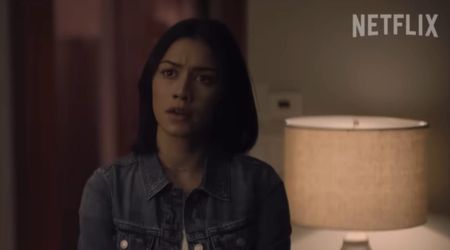‘Dracula’ Episode 1’s bad makeup and over-the-top dialogues embody campiness with admirable dedication

In her iconic 1964 essay ‘Notes on Camp’, Susan Sontag wrote with some certainty that, “Camp is either completely naive or wholly conscious.” In the context of Mark Gatiss and Steven Moffat’s gothic horror mini-series ‘Dracula’, the latter holds audaciously true.
The show’s visual and lyrical appeal lies in almost childlike exaggerations. Take for example the castle of Count Dracula (Claes Bang). It is dark, dank, labyrinthian in an almost M. C. Escher painting-like manner, and has an aura that visibly forebodes those in the vicinity of what evils lie within.
But it’s campiness is only accentuated by the naivete of Jonathan Harker (John Heffernan), the guest-turned-prisoner of the vampiric Count. The dialogues are aestheticized in tandem with the visuals.
In one of the scenes where the Count and Harker are having a dinner table conversation, the subject of servants in the castle comes up. Harker notes he has seen no one else living in the castle, to which the Count (in all his delicious evilness) agrees, “Yes, there is no one else… living… here.”
In another conversation between the two, after a visibly sick Harker fails to recognize a photo of his fiancée, the Count (who is clearly feeding on his blood) consoles him and tells him, “You do look a bit… drained.” The emphasis on “living” and “drained” are so on-the-nose, it almost feels like a treat.
Harker’s encounters with the undead in the castle is yet another bit of campy excellence. The undead look like a combination of makeup reminiscent of Michael Jackson’s ‘Thriller’ video -- note that ‘Thriller’ was also doing this for the sheer value of camp and not for the lack of good makeup artists or budget -- and bad animatronics that would feel fitting in one the ‘Gremlins’ movies.
And then there is Sister Agatha (Dolly Wells), a nun with zero faith and scientific curiosity. Her nonchalance is rooted not in any kind of reality, but in an attempt to write a character who is completely out of place.
But the real coup de grâce is Bang’s performance. From his accent -- bad Romanian to cocky British -- to his mannerisms, to his over-the-top creepy lines and their delivery, everything Bang does on this show is fantastic.
These are just a few of the many, many moments of joy in this mini-series. To enjoy ‘Dracula’, you have to enjoy not just the overt, but also the exaggerations. You have to view it as one would a B-grade horror/slasher.
The only difference is, ‘Dracula’ does this with intention and not for the lack of production capabilities or finance. And that ‘Dracula’ does it so well should be praised over and over again.
With low-budget slashers, you have to mine some irony. But ‘Dracula’ embraces and embodies the campiness so well, even a non-ironic watch is well worth it.
‘Dracula’ is available for streaming on Netflix.










